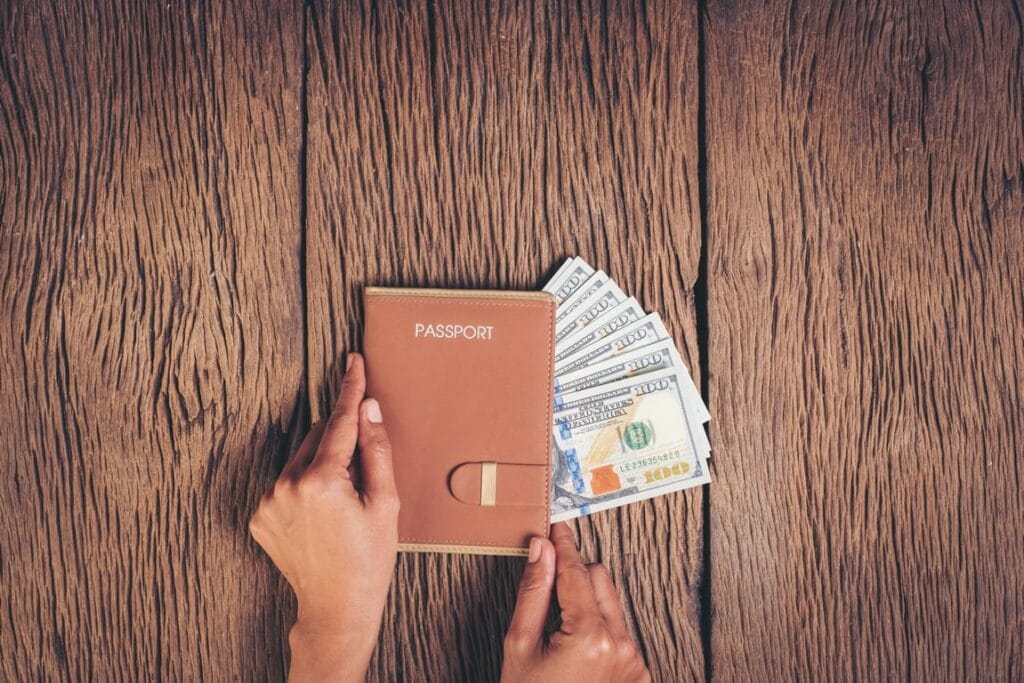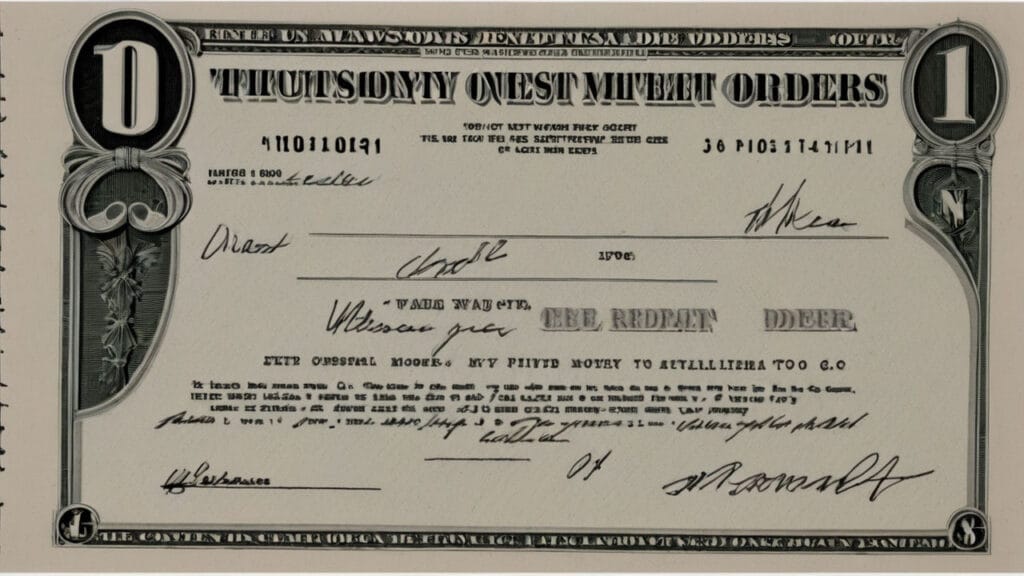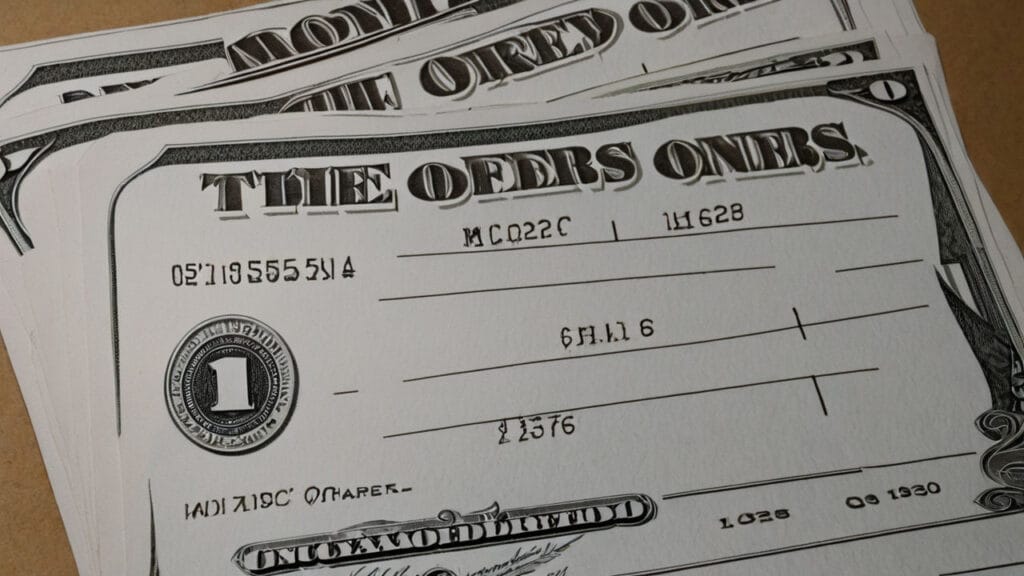In the realm of financial transactions, the money order stands as a time-honored instrument. It offers a secure method for transferring funds without the need for a bank account. Understanding how money orders work can be essential for anyone seeking reliable alternatives to conventional banking methods.

Taking in The Basics: What is a Money Order?
A money order is a prepaid financial instrument that instructs the issuer to pay a specified amount of money to a named recipient. Unlike personal checks, money orders are paid for in advance, making them a more secure payment method. This guarantees the recipient that the funds are available and will not bounce.
The History of Money Orders: From Origin to Modern Use
The concept of the money order dates back to the 19th century, providing a safe alternative for sending money through the postal system. Initially popularized by the postal services, money orders have evolved to be issued by various entities including banks, grocery stores, and retail chains. This historical journey underscores their reliability and enduring relevance.
How Money Orders Differ from Other Payment Methods
Money orders differ from personal checks and electronic transfers in several significant ways. They are prepaid, reducing the risk of insufficient funds. Unlike cash, they can be replaced if lost or stolen, adding a layer of security. Furthermore, they do not require a bank account, making them accessible to a wider demographic.

The Key Components of a Money Order: Breaking Down the Details
A money order includes several key components: the amount, the payee’s name, the issuer’s details, and a tracking number. Understanding these elements is crucial for both the purchaser and the recipient to ensure the transaction is completed smoothly. The tracking number, in particular, is essential for monitoring the status of the money order.
When to Use a Money Order: Ideal Scenarios and Benefits
Money orders are ideal in situations where secure, guaranteed payments are necessary. They are particularly useful for paying rent, sending money internationally, or purchasing goods from a seller who does not accept personal checks. The benefits include security, affordability, and ease of use, making them a versatile financial tool.
Purchasing a Money Order: Step-by-Step Guide
Purchasing a money order is a straightforward process. First, decide the amount and ensure you have sufficient funds. Visit an authorized issuer such as a bank, post office, or retail store. Provide the necessary details, including the recipient’s name, and pay the amount plus any applicable fees. Finally, keep the receipt for tracking purposes.
Read More : Money Order Near Me? All Places for Country

Authorized Locations: Where to Buy a Money Order
Money orders can be purchased at various locations including banks, post offices, grocery stores, and convenience stores. Each of these locations may offer different fee structures and limits on the amount you can send. It’s important to choose a convenient and reputable issuer to ensure the security of your transaction.
Filling Out a Money Order: Instructions and Tips
Filling out a money order correctly is essential to avoid delays and ensure the recipient can cash it. Write the recipient’s name in the “Pay to” field, and fill in your details in the purchaser section. Include any pertinent memo or account numbers, and sign where required. Double-check all information before leaving the issuer’s premises.
Sending a Money Order: Ensuring Safe Delivery
When sending a money order, consider using a secure mailing method such as certified or registered mail. This provides proof of mailing and delivery, adding an extra layer of security. Ensure that the recipient’s address is accurate and keep your receipt with the tracking number in case any issues arise.
Tracking a Money Order: How to Monitor Its Status
Tracking a money order is crucial to ensure it reaches the recipient. Most issuers provide online tracking services where you can enter the tracking number to check the status. Alternatively, you can contact the issuer’s customer service for assistance. Keeping track of the money order helps in quickly addressing any potential issues.
Read More : Money Order: 30 Questions With Answers

Cashing a Money Order: What You Need to Know
To cash a money order, the recipient must present it at a bank, post office, or authorized retail location. Identification is typically required to verify the recipient’s identity. Some locations may charge a fee for cashing money orders, so it’s advisable to inquire about any potential costs beforehand.
Fees and Costs: The Financial Aspect of Money Orders
The cost of purchasing a money order can vary depending on the issuer and the amount. Common fees range from $1 to $10. Additionally, there may be fees for replacing a lost money order or for cashing it at certain locations. Understanding these costs is important to manage your financial transactions effectively.
Money Order Security: Avoiding Fraud and Scams
While money orders are generally secure, they are not immune to fraud. Be cautious when receiving money orders from unknown parties. Verify the authenticity by checking the issuer’s details and using tracking services. Report any suspicious activity to the issuer immediately to mitigate the risk of scams.
International Money Orders: Sending Funds Abroad
International money orders facilitate sending funds across borders. They are often preferred for their reliability and ease of use. When sending an international money order, ensure it is in the correct currency and inquire about any additional fees or restrictions that may apply to the destination country.
Money Orders vs. Checks: Pros and Cons
Comparing money orders to checks reveals distinct advantages and disadvantages. Money orders are prepaid and thus cannot bounce, offering greater security. However, they may involve fees and limits on the amount. Checks, while potentially less secure, can be more convenient for larger transactions and recurring payments.
Digital Alternatives: The Future of Money Orders
The rise of digital payment methods presents alternatives to traditional money orders. Services such as electronic transfers, PayPal, and mobile payment apps offer faster and often cheaper options. However, money orders remain relevant for those without access to digital banking or for transactions requiring guaranteed funds.
Common Myths and Misconceptions About Money Orders
Several myths surround money orders, including the belief that they are outdated or unsafe. In reality, money orders provide a reliable and secure payment method, especially for those without bank accounts. Dispelling these misconceptions can help individuals make informed decisions about their financial transactions.
Read More : Can We Do Money Orders Online?
Case Studies: Real-Life Examples of Money Order Usage
Examining real-life examples highlights the practical applications of money orders. From paying rent to sending funds internationally, money orders have proven their worth in various scenarios. These case studies provide insight into their versatility and reliability in everyday use.
BOTTOM LINE
Despite the advent of digital payment methods, money orders continue to hold relevance. Their security, simplicity, and accessibility make them a valuable tool in many financial transactions. As technology evolves, money orders will likely adapt, maintaining their place in the diverse landscape of payment options.
Frequently Asked Questions (FAQs)
What is a money order and how does it work?
A money order is a prepaid financial instrument that allows the payer to send a specified amount of money to a named recipient without the need for a bank account. The payer purchases the money order by paying the amount upfront, usually along with a small fee, at an authorized issuer such as a bank, post office, or retail store. The recipient can then cash the money order or deposit it into their bank account. This method provides a secure way to send funds, as it guarantees that the money is available.
Is a money order like cash?
A money order is similar to cash in that it is a guaranteed form of payment. However, unlike cash, a money order is traceable and can be replaced if lost or stolen. It provides a secure way to make payments without the risks associated with carrying large amounts of cash. The issuer guarantees the amount on the money order, which offers protection against insufficient funds.
What is the process of money order?
The process of obtaining a money order involves several steps. First, decide on the amount you need to send. Then, visit an authorized issuer such as a bank, post office, or retail store. Pay the specified amount plus any applicable fees. Fill out the money order with the recipient’s name and your details. Finally, keep the receipt for tracking purposes. The recipient can cash the money order or deposit it into their bank account.
Do people still use money orders?
Yes, people still use money orders, especially in situations where other forms of payment are not feasible. Money orders are often used by individuals who do not have bank accounts or need to send money securely without using electronic transfers. They are also preferred for sending funds internationally and for making payments that require guaranteed funds.
Read More : How to Fill Out a Money Order Like a Pro
How to get a money order from a bank?
To get a money order from a bank, visit your local bank branch and request a money order from a teller. Provide the amount you wish to send along with any applicable fees. Fill out the money order with the recipient’s name and your details. The teller will process the payment and issue the money order, which you can then send to the recipient.
What is the meaning of money order?
A money order is a prepaid financial instrument that directs a specific amount of money to be paid to a named recipient. It is purchased in advance and provides a secure method for sending funds without the need for a bank account. The money order guarantees that the amount will be paid, making it a reliable alternative to cash and personal checks.
Can I deposit a money order online?
Depositing a money order online is possible with some banks and financial institutions that offer mobile deposit services. To do this, endorse the back of the money order and use your bank’s mobile app to take photos of the front and back. Follow the app’s instructions to complete the deposit. Note that not all banks accept money orders through mobile deposit, so check with your bank first.
What does a money order cost?
The cost of a money order varies depending on the issuer and the amount. Generally, fees range from $1 to $10. Some issuers may charge higher fees for larger amounts or for international money orders. It’s advisable to compare fees at different locations to find the most cost-effective option for your needs.
What is cheque or order?
A cheque or order refers to a written directive to a financial institution to pay a specified amount of money from the issuer’s account to the recipient. A cheque is drawn on the issuer’s bank account and can be cashed or deposited by the recipient. An order, such as a money order, is prepaid and guarantees the amount, offering added security.
Is money order a transfer?
Yes, a money order can be considered a transfer of funds. It involves the prepaid transfer of a specified amount of money from the issuer to the recipient. The recipient can then cash the money order or deposit it into their bank account, completing the transfer process.
Is money order part of cash?
A money order is not technically considered cash but is often treated similarly due to its guaranteed value. It is a secure and traceable alternative to cash, offering the benefits of a prepaid payment instrument without the risks associated with carrying physical currency.









